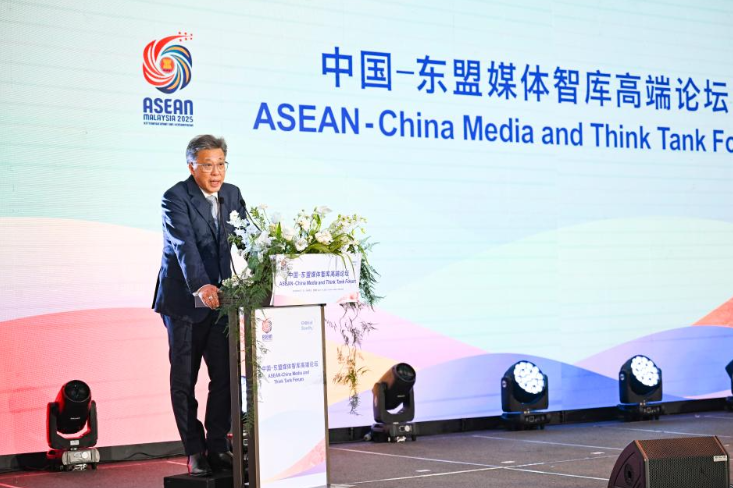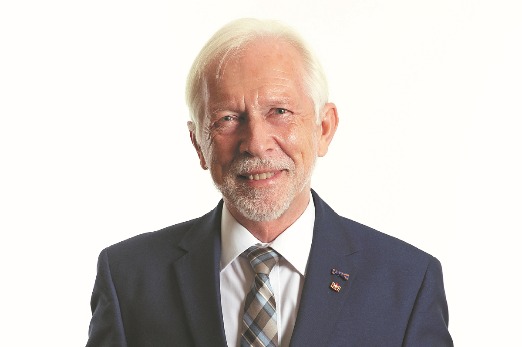Policy dialogue crucial to resilient partnership, say top voices at forum

With China and Malaysia entering a new era of bilateral relations and sustained academic collaboration, policy dialogue will be essential to realizing the shared vision of a closer and more resilient partnership.
That was the consensus of experts and scholars at a recent China-Malaysia think tank forum at Universiti Malaya in Kuala Lumpur.
The forum, themed on deepening the comprehensive strategic partnership and advancing the building of a China-Malaysia community with a shared future, brought together leading voices from think tanks and academic institutions of both countries.
Zhen Zhanmin, vice-president of the Chinese Academy of Social Sciences, said that under the guidance of head-of-state diplomacy, China and Malaysia have made remarkable progress since establishing a comprehensive strategic partnership.
"China and Malaysia enjoy a time-honored friendship that continues to thrive," Zhen said. "To further deepen bilateral relations, we must strengthen political trust, uphold multilateralism and advance practical cooperation for mutual benefit. People-to-people exchanges remain key to fostering mutual understanding."
Zhen underscored the importance of think tanks in realizing that goal. "Think tanks in both countries should leverage their strengths to jointly study key challenges in bilateral relations and offer forward-looking, targeted and actionable recommendations to policymakers," he noted.
Yvonne Lim Ai Lian, associate deputy vice-chancellor at Universiti Malaya, echoed that view, stating that academic and cultural exchanges are vital tools in building mutual trust. She said close cooperation between universities and think tanks in Malaysia and China has created platforms for academic dialogue and student exchanges, laying a solid foundation for the long-term development of people-to-people ties.
In recent years, academic cooperation between China and Malaysia has flourished. Over 10,000 Malaysian students have studied in China, while a growing number of Chinese scholars and researchers have participated in collaborative programs in Malaysia. Institutions such as Universiti Malaya and Xiamen University Malaysia campus have played a key role in promoting academic research, language learning and cultural awareness.
The forum also addressed economic collaboration, particularly in the palm oil industry — an area of strategic importance for Malaysia. Chan Foong Hin, Malaysia's former deputy minister of plantation and commodities, emphasized that bilateral ties are at a new juncture, especially following high-level visits since 2023 that have accelerated cooperation.
Malaysia hopes to deepen research and industrial collaboration with China in multiple sectors, including palm oil, to enhance product quality and promote sustainable growth, Chan said.
According to Belvinder Sron, CEO of the Malaysian Palm Oil Council, Malaysia remains a key strategic supplier to China. In 2024, bilateral trade between the two countries reached $212.04 billion, with China maintaining its status as Malaysia's largest trading partner for the 16th consecutive year. Malaysia exported 2.74 million metric tons of palm oil and related products to China last year, including 1.39 million metric tons of palm oil and 1.35 million tons of derivatives. "We are dedicated to positioning Malaysian palm oil as a global benchmark for sustainable development," the CEO said.
Wang Cheng, head of MPOC's operations across China, highlighted the long-standing trust Chinese consumers place in Malaysian palm oil due to its quality and stable supply. "We will continue to explore innovative pathways for industry upgrading and deepen bilateral engagement in trade and technology," she said.
The China-Malaysia think tank forum, first launched in 2016, has been held alternately in both countries for seven sessions. This year's forum was co-hosted by the National Institute of International Strategy under CASS and the Faculty of Arts and Social Sciences at Universiti Malaya, and organized by the Institute of China Studies at Universiti Malaya.
Over the years, the forum has become a cornerstone of academic diplomacy, fostering mutual understanding, shaping public discourse and enhancing long-term cooperation between China and Malaysia.

































